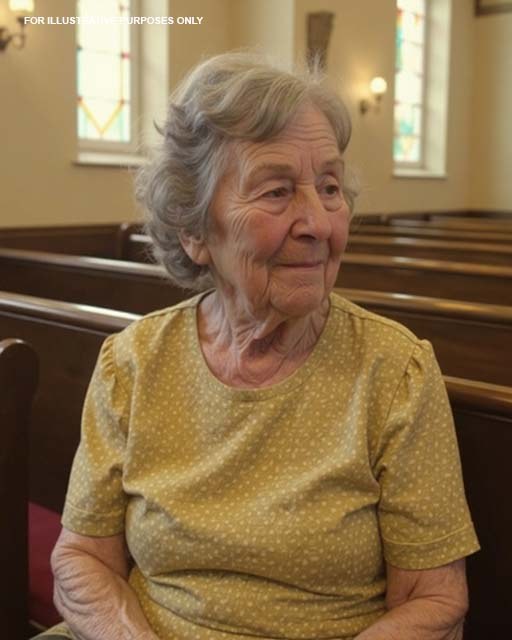My grandmother, Valerie, had a presence that made any room feel sacred. She never loudly proclaimed her faith or displayed her goodness—she simply lived it, day after day, in ways that made everyone around her feel seen and cared for. For nearly fifty years, she devoted herself to her church like it was her life’s calling.
She cooked for every potluck, led the choir for decades, cleaned the pews when no one else volunteered, and wrote notes of comfort to anyone grieving. Weddings, funerals, community events—she was always there, early or late, quietly giving her all. Everyone knew her name, everyone admired her.
I grew up sitting beside her in the second-row pew every Sunday, my small hand in hers as we sang hymns. I didn’t understand much as a child, but I knew that her faith was the backbone of her life. “You serve people because that’s how you serve God,” she’d tell me. “Never expect anything back but love.” And for a long time, I believed her completely.
Valerie wasn’t wealthy. She lived in a modest house with a creaking porch and a fragrant garden. After my grandfather passed away when I was eight, the church became her world. She poured herself into it with a devotion that seemed endless.
But even the kindest hearts are tested.
It began subtly. Missed Sundays, doctor visits, quiet phone calls, piles of medical bills. When I asked, she smiled and said, “It’s nothing, dear. The Lord knows what He’s doing.”
Eventually, we learned the truth: she had aggressive bone cancer at seventy-four. She never asked for sympathy, only for help from the church she had served her entire adult life—a small contribution toward medical costs, a meal train so she wouldn’t have to cook.
Weeks passed. Nothing came. No meals, no visits. The church she loved had turned its back.
I remember sitting with her as sunlight pooled around her fragile frame. “Did anyone come by this week?” I asked.
“No,” she said softly, smiling. “But I’m sure they’re just busy.”
“They weren’t too busy when they needed you,” I muttered.
She gave me a gentle, firm look. “Bitterness is heavy, dear. Let them carry their burdens. I’ll carry mine with grace.”
Even grace has its limits, though. Calls went unanswered, committees removed her from leadership, and the only response from friends was, “We’re praying for you.”
Then came the letter from the church treasurer: no financial help.
She sat quietly at her kitchen table with the letter in her hands. That night, I heard her praying—not for healing, not for money, but for forgiveness for those who had forgotten her.
Two months later, she passed peacefully. Her final words to me were: “Don’t let your heart harden, love. The truth always reveals itself in time.”
At her funeral, the church was packed with people who had done nothing while she was alive. The pastor spoke of her devotion and service. I stayed silent, remembering her grace.
Weeks later, her will was read. She left her estate to the church—but with a condition: the church had one year to establish a community care fund for elderly members, funding at least 25% from its own budget. If they failed, the money would go to the local women’s shelter in memory of her husband.
The congregation stalled. The pastor and committee delayed. Meanwhile, the women’s shelter quietly continued its work.
One year later, the church had not fulfilled the condition. The estate transferred to the shelter, which used the funds to renovate, expand programs, and name a new wing the “Valerie Greene Community Center.”
At the ribbon-cutting, I spoke: “Faith isn’t measured by how often you go to church—it’s measured by how you treat people when no one’s watching. My grandmother gave her heart to the church for fifty years, and when she needed them, they turned away. But she didn’t respond with bitterness. She gave her love to those who would pass it on.”
Later, some church members apologized. I simply said, “She forgave you long before you even realized it.”
Valerie taught that love is a verb, that faith without compassion is empty, and that silence can be the loudest sermon. Her legacy wasn’t money—it was the lesson that disappointment can become opportunity, and that grace can outlast neglect.
I still sit in that second-row pew sometimes, not for sermons, but to feel close to her—the woman who showed me that even when the world turns away, love can stand tall, and the quietest voices often echo the longest.
